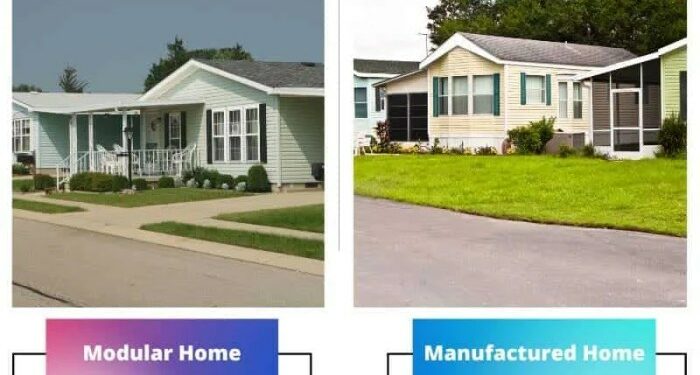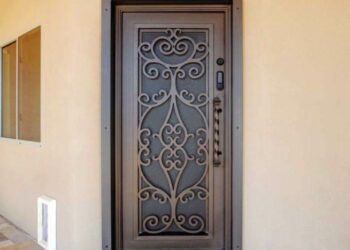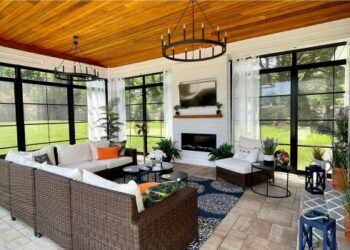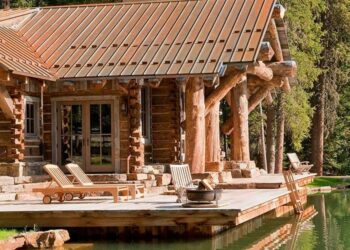When it comes to choosing between custom built homes and modular homes, the decision can be quite daunting. Each option offers unique benefits and considerations that cater to different preferences and requirements. Let's delve into the world of custom built homes versus modular homes to understand the intricacies of each and help you make an informed choice for your dream home.
Custom Built Homes vs Modular Homes
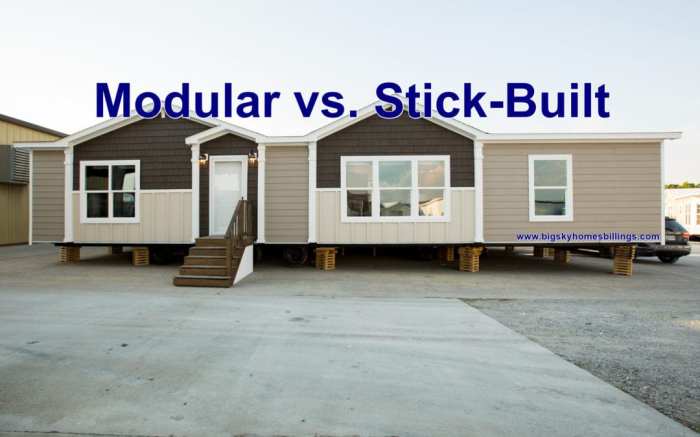
Custom built homes are unique residences that are designed and constructed according to the specific preferences and needs of the homeowner. These homes are typically built on-site by a team of architects, builders, and contractors, allowing for maximum customization in terms of layout, design, and materials.Modular homes, on the other hand, are prefabricated homes that are built off-site in a factory setting.
The modules are then transported to the final location and assembled on a foundation. While modular homes offer some degree of customization, they are limited in terms of design options compared to custom built homes.
Customization Options
Custom built homes offer virtually unlimited customization options, allowing homeowners to have full control over every aspect of their home, including floor plan, finishes, fixtures, and more. This level of customization ensures that the final product perfectly fits the homeowner's unique style and needs.In contrast, modular homes have limited customization options due to the standardized nature of the modules.
While homeowners can choose from a selection of pre-designed floor plans and finishes, they may not be able to fully customize every detail of their home.
Construction Process
The construction process for custom built homes involves working closely with architects and builders to create a one-of-a-kind design that meets the homeowner's specifications. Construction takes place on-site, allowing for real-time adjustments and customizations throughout the building process.Modular homes are constructed in a controlled factory environment, where each module is built to precise specifications.
Once the modules are transported to the final location, they are assembled and finished on-site. This streamlined construction process can result in faster build times compared to custom built homes.
Design and Architecture
When it comes to custom built homes, one of the key advantages is the design flexibility that homeowners have. They can work closely with architects and builders to create a home that suits their specific needs, preferences, and lifestyle. This level of customization allows for unique features, layouts, and finishes that truly reflect the homeowner's vision.
Design Flexibility in Custom Built Homes
- Homeowners can choose the layout, size, and shape of their home to best fit their needs.
- Custom built homes can incorporate unique architectural features, such as high ceilings, large windows, and custom millwork.
- Materials, finishes, and fixtures can be selected to match the homeowner's style and preferences.
- Custom built homes can be designed to maximize natural light, energy efficiency, and indoor-outdoor living spaces.
Architectural Styles in Custom Built Homes
- Colonial
- Craftsman
- Modern
- Contemporary
- Mediterranean
Design Limitations of Modular Homes
- Modular homes often have a limited range of design options due to the prefabricated nature of the construction.
- Customization is restricted to pre-set floor plans and design choices offered by the manufacturer.
- Architectural features and finishes may be more standardized and less customizable compared to custom built homes.
Impact of Design Choices on Cost
- In custom built homes, the more intricate and personalized the design choices, the higher the overall cost will be.
- Modular homes tend to have lower upfront costs due to the standardized designs and construction process.
- However, customization options in modular homes can increase the overall cost, as additional features or upgrades are often priced higher.
Quality and Durability
When it comes to the quality and durability of homes, the materials used and construction methods play a crucial role in determining how long a home will last and how well it will withstand the test of time
Materials Used in Custom Built Homes
Custom built homes often use high-quality materials such as solid wood, stone, and premium insulation. These materials are carefully selected for their durability and longevity, ensuring that the home is built to last for generations.
Durability of Modular Homes
Modular homes, on the other hand, are built in a factory setting and transported to the site for assembly. While modular homes can be durable, they are generally not as sturdy as custom built homes due to the limitations of transporting pre-fabricated sections and the materials used in construction.
Quality Control Measures
In custom built homes, quality control measures are typically stricter as each component is built on-site and inspected throughout the construction process. This hands-on approach allows for any issues to be addressed immediately, ensuring that the final product meets high-quality standards.In contrast, modular homes undergo quality control measures in the factory where they are constructed.
While there are inspections in place, the limitations of building in a controlled environment can sometimes lead to overlooked issues that may impact the overall durability of the home.
Structural Differences
One of the key structural differences between custom built homes and modular homes is the foundation. Custom built homes often have deeper foundations and are more securely anchored to the ground, providing added stability and durability. On the other hand, modular homes typically have lighter foundations and may not be as well-equipped to withstand extreme weather conditions or natural disasters.Overall, while both custom built homes and modular homes have their own advantages, the materials used, construction methods, and quality control measures all contribute to the overall quality and durability of a home.
Cost and Time Efficiency
When it comes to building a new home, cost and time efficiency are crucial factors to consider. Let's delve into the comparison between custom built homes and modular homes in terms of overall cost and construction time.
Cost Comparison
- Custom Built Homes: Custom built homes tend to be more expensive upfront due to the personalized design and high-quality materials used. Homebuyers have the freedom to choose every detail, but this customization comes at a price.
- Modular Homes: Modular homes are typically more cost-effective than custom built homes as they are constructed in a factory setting, which reduces labor costs and construction time. The standardized designs and bulk purchasing of materials also contribute to cost savings.
Potential Cost Savings
- Custom Built Homes: While custom built homes may have a higher initial cost, homeowners have the potential to save money in the long run by incorporating energy-efficient features and durable materials that require less maintenance.
- Modular Homes: The cost savings associated with modular homes often come from the streamlined construction process, reduced labor expenses, and efficient use of materials. Additionally, the controlled factory environment minimizes material waste.
Construction Time Analysis
- Custom Built Homes: Building a custom home can be a time-consuming process, especially when intricate designs and unique features are involved. Delays may occur due to weather conditions, material availability, and customizations requested by the homeowner.
- Modular Homes: Modular homes are known for their faster construction timeline compared to traditional custom homes. Since modules are prefabricated off-site, the on-site assembly can be completed in a fraction of the time, leading to quicker occupancy.
Factors Influencing Efficiency
- Cost Efficiency Factors: The cost efficiency of custom built homes depends on the complexity of the design, choice of materials, and location of the build. In contrast, modular homes benefit from economies of scale, standardized construction processes, and minimal on-site labor.
- Time Efficiency Factors: The time efficiency of custom built homes is influenced by design changes, permit approvals, and weather conditions. Modular homes excel in time efficiency due to the controlled factory environment, assembly line production, and predictable construction schedules.
Final Conclusion
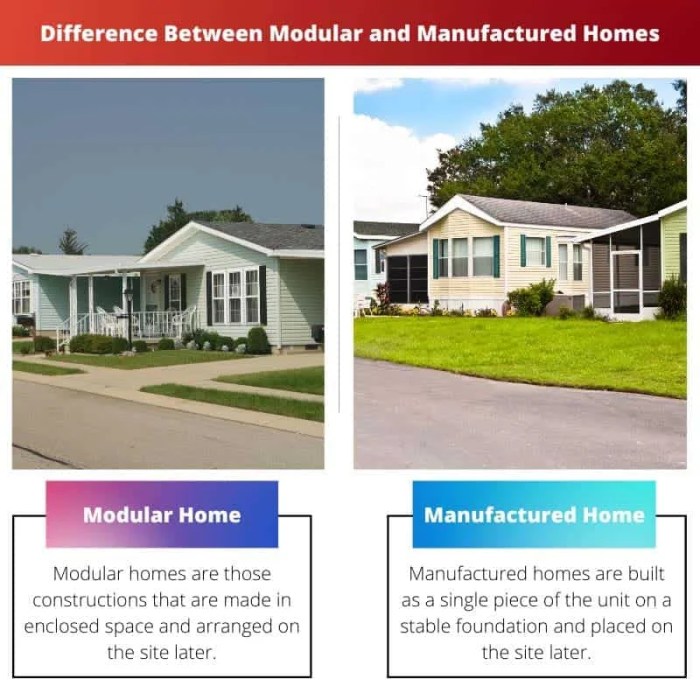
After exploring the nuances of custom built homes and modular homes, it becomes evident that the decision ultimately boils down to personal preferences, budget constraints, and desired timelines. Whether you opt for the flexibility of custom built homes or the efficiency of modular homes, both choices offer distinct advantages that can fulfill your vision of a perfect living space.
Answers to Common Questions
Are modular homes cheaper than custom built homes?
Modular homes are generally more cost-effective than custom built homes due to their streamlined construction process and standardized designs.
Do custom built homes offer more design flexibility than modular homes?
Yes, custom built homes provide extensive design flexibility, allowing homeowners to personalize every aspect of their living space according to their preferences.
Which type of home is quicker to build, custom built or modular?
Modular homes are typically quicker to build compared to custom built homes because they are constructed off-site in a controlled environment.

